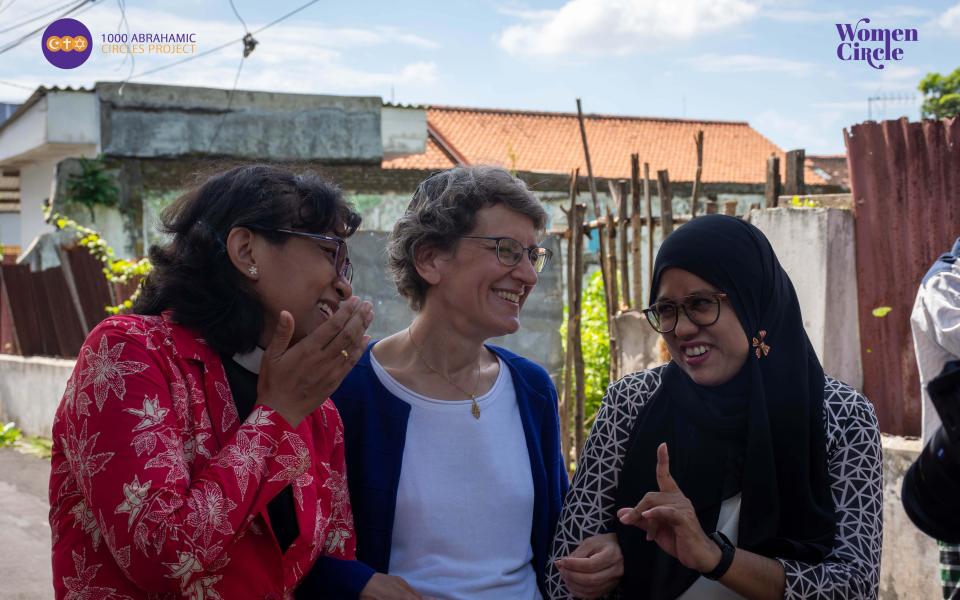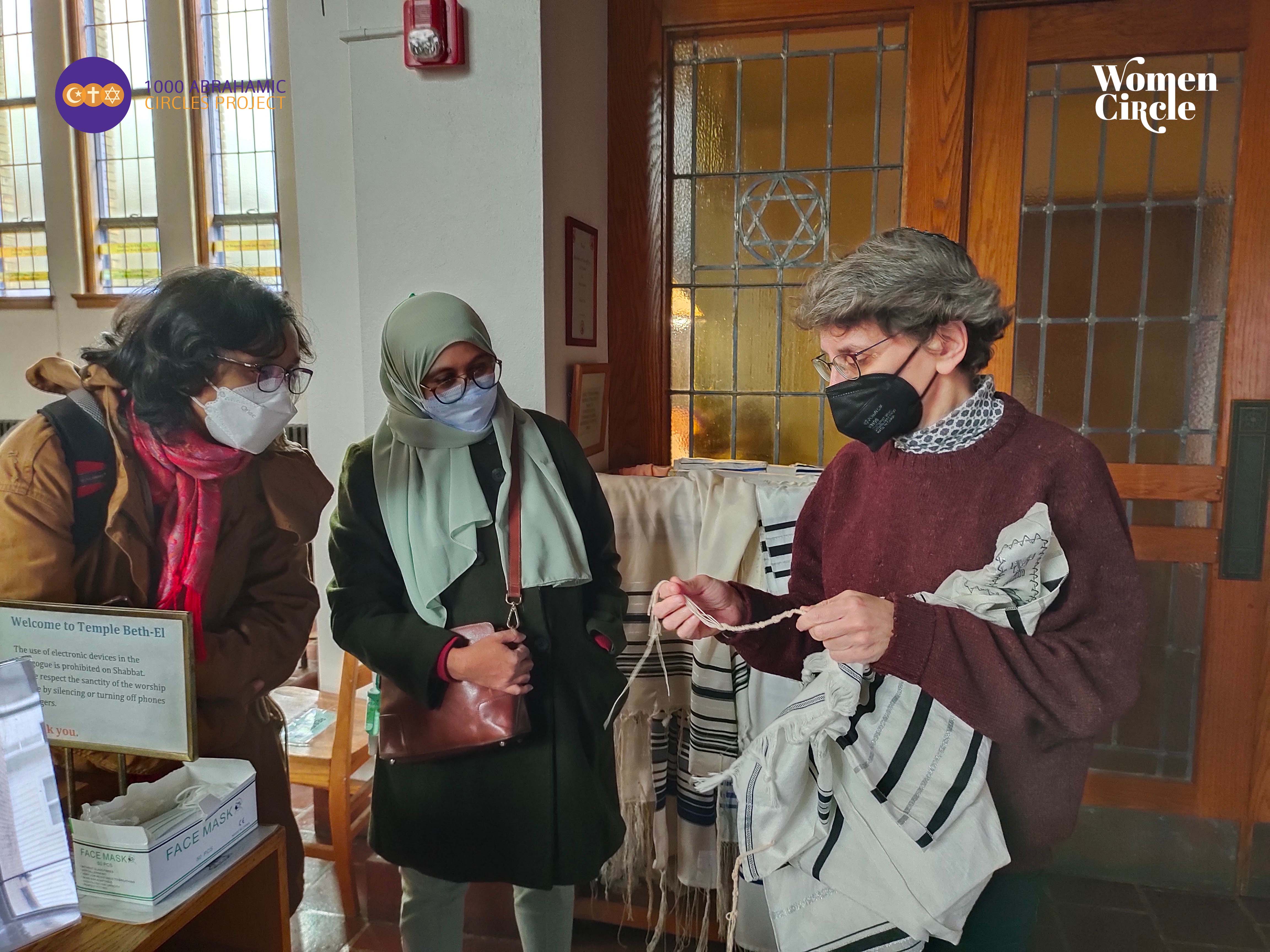
Principle 8 highlights URI’s stance and dedication to equitable participation and inclusion of women and men in all aspects of URI work. URI is working with 351 Cooperation Circles worldwide to enhance women's leadership, addressing gender equality and equity, domestic violence prevention, economic empowerment, and education.
URI has taken actions to amplify the voice and action of women’s initiatives and efforts, create networks for sharing, caring, and connecting with women in different URI regions, foster collaboration, and share educational and resource mobilization opportunities to support women in the network.
A recent story from 1000 Abrahamic Circles CC shows the importance of involving women in interfaith collaboration.
The 1000 Abrahamic Circles has a project that funds three influential religious leaders from different religions to visit each other’s religious communities for three weeks to break down negativity by deeply learning from one another and empowering them to share these experiences with their communities. The efforts aim at achieving peace and harmony among the Abrahamic faiths.
The initiative has recently funded the women’s circle project that brought together three women from Islam, Judaism, and Christianity to share experiences in interfaith work and the challenges women in leadership face.
This trio of strong women come from different backgrounds and faiths but are similar in circumstances; they are mothers, wives, and religious leaders. Reverend Kristi from Indonesia, Rabbi Rachel Safman from New York, and Ustadza Koirun Nisa from Indonesia are women leaders who have defied the odds in communities where women's leadership is underestimated due to gender.
“My colleagues, Ustadaz Anis and Rev Kristi, became close friends; we shared both professional experiences and the experience of being mothers, wives, and women who are pioneering our respective roles in our communities and struggling with the implications. Of the choices that we had made.” Rabbi Rachel Safman.
The women found that their differences were trivial compared to the strength of their shared values and desire to ensure prosperity and peace in the world. They realized that as they become empowered, they too can empower their communities regardless of gender.

“When I heard that this project is for female religious leaders from Jews, Christianity, and Islam, I was excited to learn more about Rabbi and Ustadah’s life and roles in their religion because I knew that Jews and Islam only have males as religious leaders.” Reverend Kristi
The story of Rabbi Rachel Hafman, Rev. Kristi, and Ustadza Koirun Nisa embodies the daily struggles of women’s quest to become leaders in male-dominated spaces and communities. However, it shares the hope that equity and inclusion are possible and that women’s empowerment is a prerequisite for peace, harmony, and sustainable development in global communities.
The 1000 Abrahamic Circles continues to support interfaith collaboration, connection, and learning through interfaith visits. The Cooperation Circle hopes to reach out directly to 30 million people and over 100 million indirectly through the press and social media.
Watch the video recording of the recent interfaith travel